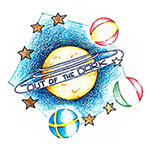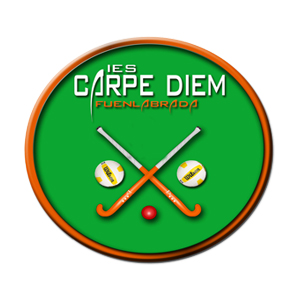I.E.S. Carpe Diem is a State Secondary School located in an urban area, next to Fuenlabrada, in the South of Madrid. The neighbourhood is formed by about 28.500 people, of which the 31 % is under 19 years of age, so it is one of the youngest cities in Spain. Some years ago, the neighborhood was formed by the lowest social class, but it is changing at present, with the incorporation of families whose parents have a highcultural and economic level.
Our centre was founded in 2010, and one year later it became a Sport School, where students attend more classes of Physical Education and Hockey and Volleyball are the main sports. However, we are developing a new and innovative line of work, centred on Sciences, Technology and Humanities, because our students chose one of these specialities for their High School Degree.
In this field we have worked on different projects centred on Ecology (“One centre, one wood”, “Around the environment”), in which many of the school departments have been involved. We won the 1st Price in the “VIII Survey and Experiment Incubator Contest” in its local phase with one of these activities.
Every year we promote and celebrate the Science Fair in Fuenlabrada, as a way to exchange scientific experiences among different schools, in a range between 4 and 18-year-old students. We have signed an agreement with the Local Authorities in order to coordinate this event.
On the other hand, we celebrate a Book Week every year. In small groups, children are encouraged to share ideas with well-known Spanish authors and illustrators.
Moreover, we realize a good number of extra-curricular activities and workshops taking every opportunity to improve our knowledge and methods, for example in Technical Schools at the University, Museums, Archaeological centres, etc.
At the moment we presented this project, we had almost 1000 students, 100 studying Sciences and Technology at High School Grade, and about 80, more or less, Social Sciences and Humanities. Thus, we could adequately address the project to them, giving the number and academic level of these students.
The Spanish team is formed by teachers from different departments, most of them teaching scientific issues, as Physics and Chemistry, Biology and Geology, Maths, Technology. There are others from the fields of Philosophy, Literature, Music, etc., as well as English teachers.
We are willing to study in advance contents required; some of us have worked previously in data processing and statistics for years while studying at the University.
Some of us have participated previously in a Comenius Project with other schools as IES Victoria Kent in Fuenlabrada or IES Galileo Galilei, so we have experience in international projects and coordination.
In the city and the surrounding area we can count on the Astronomy Centre of Fuenlabrada. There, students will use all kind of telescopes, and teachers will also receive scientific and technical assessment. In addition, Astronomy Centre of Fuenlabrada can give us some important and interesting contacts in the Astrobiology Centre, and Madrid Deep Space Communications Complex in Robledo de Chavela, one of the sites of NASA’s Deep Space Network that we visit every year with our students .
Last but not least, the cooperation with the town of Fuenlabrada that has been established throughout the last three years will ensure adequate locations to display the results of the project.



